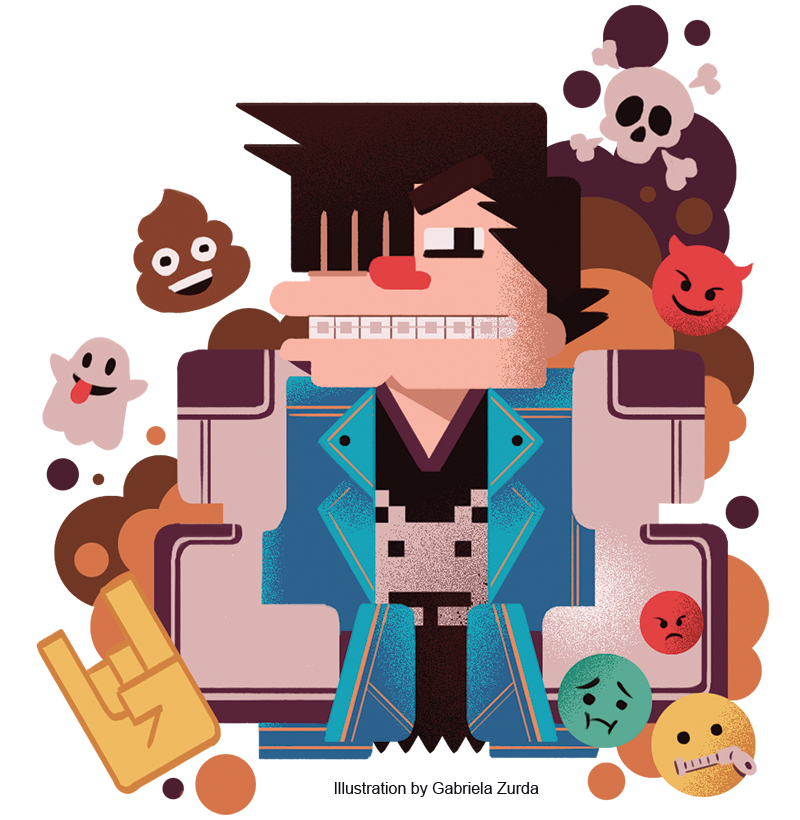Talking to Cyberbullied Kids—and to Bullies
Educators can play a key role in helping these students move forward with resilience.
 Adolescence is a time of upheaval, though teenagers as a whole are kind, brave, and resilient. As a clinical psychologist who works with teens, I see these traits on display all the time while young people manage the ups and downs of adolescence and battle the more serious challenges that bring some to therapy.
Adolescence is a time of upheaval, though teenagers as a whole are kind, brave, and resilient. As a clinical psychologist who works with teens, I see these traits on display all the time while young people manage the ups and downs of adolescence and battle the more serious challenges that bring some to therapy.
One of the most rewarding aspects of my work as a consulting psychologist to a school is witnessing the bonds that develop between students and educators. I’ve seen teens who are facing difficulty benefit immensely from these supportive relationships—whether the issue is a low grade on a test, a fight with a friend, or much more challenging situations, such as cyberbullying. Digital aggression and cyberbullying can make students feel devastated, exposed, and sometimes hopeless. I know that educators can play a key role in helping these students move forward with resilience—including young people who have been targets of cyberbullying and others who have perpetrated it. Librarians are well positioned to provide concrete, empathetic guidance to students on both sides of the situation. Here are talking points to help start the conversations.
Tell someone who has been bullied…
"You are not alone."
About a third of adolescents have been cyberbullied, and many more have seen friends go through it. Teens can find community and support from organizations including the Cyberbullying Research Center, StopBullying.gov, and the Pacer Center’s Teens Against Bullying page.
"You can be part of the solution."
Cyberbullying strips teens of their sense of control—but some can be restored when teens take steps to build a kinder, safer online world. Encourage them to be upstanders online, with support from sources including Netsmartz, NetFamilyNews, the Anti-Defamation League, and KiVa, suggests Justin Patchin, co-director of the Cyberbullying Research Center. They can speak out against cyberbullying with words or anti-bullying emojis, and share their experience if they feel safe doing so.
"We are here for you and others."
Often, young people won’t tell adults about cyberbullying until it has been going on for a long time or is impacting their psychological health. Even then, some stay silent out of embarrassment, fear of retaliation, or worry that they’ll lose access to devices. The signs of cyberbullying are easy to miss, says Patchin. Establishing trusting relationships with students will make them more likely to come forward.
Schools can establish easy ways for students to inform faculty if they suspect cyberbullying or are worried about a peer, such as secure places to leave an anonymous message of concern—for example, a locked box in the school library.
"Respond strategically."
When bullies don’t get the desired reaction, they often move on. Help teens recognize that responding impulsively out of anger can create more difficulty. For ongoing or severe cyberbullying, keep a hard copy of the threat—a printout or screenshot—in case evidence is needed later.
"How can you fill your tank?"
Dealing with cyberbullying is psychologically and emotionally draining, but self-care habits can build resilience. Help teens identify simple ways to refill their proverbial gas tank, such as listening to music or walking the dog. A school atmosphere that feels safe, fair, and kind also helps. Offer stress-busting activities in the library such as coloring books, meditation guides, and mindfulness apps.
"It gets better."
Cyberbullying peaks in late middle or early high school, but it can feel never-ending for those going through it. Connect young people who are feeling hopeless with older, responsible peer mentors, particularly those who have experienced cyberbullying.
"Take a tech break."
It’s hard for teens to turn away from their devices, even if the content makes them miserable. Consider creating dedicated "tech-free" library zones. Many college students crave these spaces.
Since tech lacks the depth of connection that occurs in person. Encourage students to spend face-to-face time with friends, and suggest extracurricular or service activities to help form these relationships.
Tell someone who has bullied others…
"You can work to repair this."
Repairing the situation should start with a sincere apology to the victimized peer. A face-to-face apology is ideal, as long as the bullied student is comfortable with direct contact. Making amends may mean avoiding contact with an individual online or in person, depending on how they feel. Focusing on a bully’s behavior, not the individual person, can encourage them to make amends. Still, cyberbullying can have lasting effects for the victim and the aggressor. Giving things time is part of the healing process.
"Are you OK?"
Kids who cyberbully often experience depression, anxiety, and loneliness; some tend to interpret benign encounters with others as having a negative or malicious intent. Social-emotional learning strategies, including those providing education about depression and anxiety that focus on communication and conflict resolution, can reduce student cyberbullying.
"There’s room to grow."
Everyone make mistakes. Cyberbullying is a very public one—and a chance to learn and do better. Young people who believe they can change their behavior for the better are more likely to take steps to behave differently. Help students foster this growth mind-set in relation to bullying.
"Think before you type."
Help teens develop strategies for avoiding online impulsivity: stepping away from their phone before responding to perceived negative comments, having difficult conversations face-to-face, reading over responses, and waiting a certain amount of time before posting.
"Put yourself in someone else’s place."
Considering another’s perspective can be a powerful deterrent to future cyberbullying. Because many bullies have also been on the receiving end, they know how it feels.
"Use your power for good."
Cyberbullying is a powerful way to hurt others, but teens can wield digital power positively. Show students the constructive ways adolescents use social media, from crowdfunding deserving projects to promoting kindness.
 Tori Cordiano, Ph.D., is a clinical psychologist in Beachwood, OH.
Tori Cordiano, Ph.D., is a clinical psychologist in Beachwood, OH.
RELATED
The job outlook in 2030: Librarians will be in demand
The job outlook in 2030: Librarians will be in demand
ALREADY A SUBSCRIBER? LOG IN
We are currently offering this content for free. Sign up now to activate your personal profile, where you can save articles for future viewing






Add Comment :-
Be the first reader to comment.
Comment Policy:
Comment should not be empty !!!